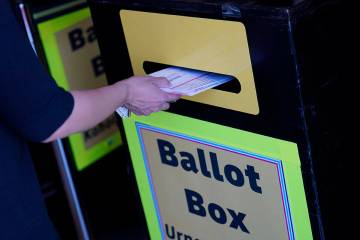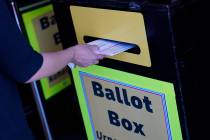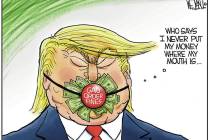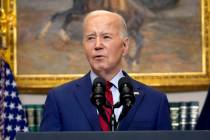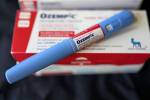COMMENTARY: When ‘negotiation’ means its opposite, cancer patients suffer
In various bills over the past 15 years, Congress has tried to endow the secretary of health and human services with the power to negotiate with pharmaceutical manufacturers over what Medicare pays for drugs. After all, who can object to negotiation?
But what the Biden administration and its allies propose isn’t negotiation. In a negotiation, parties work out a compromise in good faith. In this case, “negotiation” is an Orwellian term that means its opposite. The government sets the price, and the consequences will be devastating to the sickest Americans, especially those with cancer.
In 2019, the House passed H.R. 3, which set a limit on drug prices based on the average in a group of other countries. If manufacturers failed to accept those prices, they would be hit with a tax of 95 percent of gross revenues. The bill never passed the Senate, but government price-setting (disguised as “negotiation”) returned as part of the Build Back Better Act, now morphed into a smaller reconciliation bill that Senate Majority Leader Chuck Schumer said this month he wants to put to a vote before the August recess.
The exact language is still uncertain, but the health care consulting firm Avalere concluded in May that the text would allow “more than 100 drugs” to be available for “negotiation” by 2030 for both Part D prescription drugs and Part B treatments administered in hospitals and doctors’ offices. According to research by the Kaiser Family Foundation, 13 of the top 40 Part D and B drugs in total spending treat cancer. They will be targets.
In fact, Axios reported that the latest draft legislation on drug pricing, which runs 190 pages, “would require Medicare to use its new negotiating power for as many drugs as possible — a change from earlier drafts, which gave the department some flexibility to back off.”
President Joe Biden has recently been including negotiation on his list of inflation-fighting measures — even though the Consumer Price Index for pharmaceuticals has risen only 1.9 percent in the year ending May 31. Biden said in a speech at a Virginia college, “The idea that you can charge whatever you want is just not going to happen.”
Even now, of course, drug companies can’t charge whatever they want. They are subject to real negotiation with pharmacy benefit managers (PBMs), the hard-nosed firms that work for health insurers. Benefit managers negotiate price concessions in return for placing drugs in insurers’ formularies (in effect, medicine cabinets) and, more specifically, in tiers, which require different levels of out-of-pocket payments by patients.
They negotiate for both Medicare and commercial policies. The largest, CVS Caremark, has 100 million members, compared with 50 million for Medicare Part D. So, a single benefit manager has roughly twice as much negotiating leverage as the HHS secretary would have.
But the secretary wouldn’t really be negotiating. He would be setting prices, period. What would that mean to cancer patients?
The cancer death rate has fallen by nearly one-third in the past quarter-century, and while abstinence from smoking and earlier detection have helped, a study by Seth Seabury and colleagues estimates that 73 percent of the success in fighting cancer is attributable to drugs.
Cancer drugs accounted for one-fourth of all Food and Drug Administration pharmaceutical approvals from 2010 to 2019 and for half of the FDA’s drug pipeline for the future. Biden, whose son died of cancer, wants to cut mortality from the disease in half over the next 25 years with his Cancer Moonshot. To do that, we need more and better cancer medicines.
But a new study concludes that “the latest publicly proposed price controls reduce overall annual cancer R&D spending by about $18.1 billion, or 31.8 percent.” The study was conducted by one of the leading health economists, Tomas Philipson, who directs the Program on Foundational Research in Health Care Markets and Policies at the University of Chicago, and two colleagues. Philipson was former acting chairman of the President’s Council of Economic Advisers.
Previous research by Philipson found that when drug revenues drop 1 percent, drug R&D drops 1.5 percent. Price controls would trigger a precipitous decline in revenues, so even with a boost in public spending on cancer research proposed by Biden, the study predicts a “28.5 percent decrease in the number of new cancer drugs produced per year.” That’s in line with previous work published by the National Bureau of Economic Research and elsewhere.
Last year, 14 new cancer drugs were approved by the FDA. Four of those would never reach patients.
Currently, as a Wall Street Journal editorial headline put it, the United States is “where you want to get cancer.” The piece cited a study in The Lancet last year that found someone diagnosed with pancreatic cancer between 2010 and 2014 had nearly twice the likelihood of surviving five years here than in the United Kingdom.
The five-year survival rate for brain cancer was 36.5 percent in the United States, 27.2 percent in France and 26.3 percent in the United Kingdom. For stomach cancer: 33.1 percent in the United States, 26.7 percent in France and 20.7 percent in the United Kingdom.
A survey in 2018 identified that of the 65 new cancer drugs launched between 2011 and 2017, “nearly all were available in the United States (62 medicines or 95 percent) compared to 75 percent in the United Kingdom and 51 percent in Japan.”
All that will change radically under the new legislation. American drugs won’t be developed, and American lives will be lost. Medicare could certainly use reforms such as adding a ceiling to out-of-pocket expenses by patients. The last thing it needs is a dose of phony negotiation.
James K. Glassman, former undersecretary of state and senior fellow at the American Enterprise Institute, advises health care companies.






